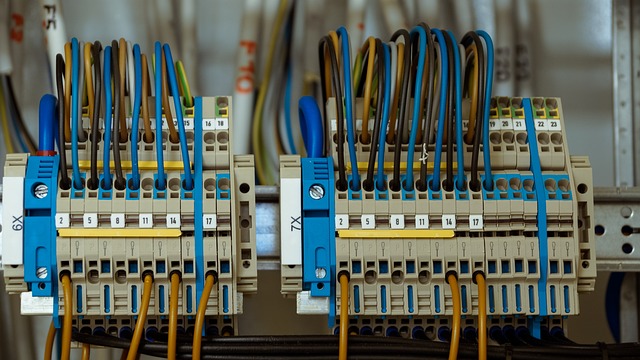Electrical Safety Audit in Saharanpur
Introduction
Welcome to our comprehensive guide on electrical testing in Saharanpur. As a reputable provider of electrical services, we understand the importance of ensuring safe and efficient electrical systems for both residential and commercial properties. In this article, we’ll delve deep into the world of electrical testing, explaining its significance, the types of tests performed, and how it contributes to a secure and optimal electrical infrastructure. Let’s get started!
Why Electrical Testing Matters?
Electrical testing is a critical process that assesses the performance, safety, and reliability of electrical components and systems. Whether you’re a homeowner, business owner, or industrial facility manager in Saharanpur, ensuring the integrity of your electrical setup is essential to avoid potential hazards and operational disruptions.
1. Safety First
Electrical accidents can be extremely dangerous and, in severe cases, fatal. Regular electrical testing helps identify potential risks, such as faulty wiring, overheating circuits, or malfunctioning equipment, allowing for timely repairs and preventive measures to avert accidents and protect lives.
2. Compliance and Regulations
Adhering to electrical safety regulations is crucial for every property owner in Saharanpur. Regular testing ensures compliance with local and national safety standards, keeping you on the right side of the law and avoiding any penalties.
3. Enhanced Efficiency
Electrical testing helps identify inefficiencies in your electrical systems, such as energy wastage or power surges. Addressing these issues can lead to improved energy efficiency, lowering utility costs, and reducing your carbon footprint.
4. Preventing Costly Downtime
For businesses and industries, electrical failures can result in costly downtime. Regular testing helps detect potential problems early on, allowing for proactive maintenance and preventing unexpected breakdowns that could lead to production halts.
Types of Electrical Testing
Now that we’ve established the significance of electrical testing, let’s explore the different types of tests commonly performed:
1. Visual Inspection
The first step in electrical testing is a visual inspection. Qualified technicians thoroughly examine electrical components, looking for any visible signs of damage, wear, or corrosion. This initial assessment provides essential insights and can prompt further testing if any issues are detected.
2. Voltage Testing
Voltage testing involves measuring the electrical potential difference between two points in a circuit. It helps determine if the voltage levels are within the acceptable range, ensuring the safety of the electrical system and its components.
3. Current Testing
Measuring current flow in circuits is essential to ensure that electrical devices are receiving the appropriate amount of current. Insufficient or excessive current can lead to equipment damage and pose safety risks.
4. Resistance Testing
Resistance testing evaluates how well electrical materials or components can resist the flow of electrical current. This test is crucial in identifying potential faults in circuits, such as short circuits or faulty connections.
5. Earth Fault Testing
Earth fault testing checks the efficiency of the grounding system in an electrical setup. Proper grounding is vital to safeguard against electrical shocks and ensure the stability of the electrical network.
6. Insulation Resistance Testing
Insulation resistance testing determines the quality of electrical insulation, preventing current leakage and the risk of short circuits. This test is particularly important in identifying aging or damaged insulation.
7. RCD Testing
Residual Current Device (RCD) testing is essential for verifying the functionality of safety switches. RCDs are designed to disconnect the power supply when they detect an electrical fault, preventing electric shocks and electrocution.
8. Thermal Imaging Testing
Thermal imaging is a non-invasive technique that uses infrared technology to detect temperature variations in electrical components. This test can identify overheating issues, which may indicate potential failures or hazards.
The Importance of Professional Electrical Testing Services
While DIY enthusiasts might be tempted to conduct electrical testing themselves, it’s essential to emphasize the importance of hiring professional electrical testing services in Saharanpur. Only certified and experienced technicians possess the expertise and knowledge to conduct thorough and accurate tests, ensuring the safety and reliability of your electrical systems.
1. Expertise
Certified technicians have undergone rigorous training and possess the necessary qualifications to conduct electrical testing accurately. Their expertise helps identify potential issues that untrained eyes may overlook.
2. State-of-the-art Equipment
Professional electrical testing companies use advanced testing equipment, including thermal imaging cameras and specialized meters, providing precise results and comprehensive assessments of your electrical infrastructure.
3. Compliance with Regulations
Reputable electrical testing services adhere to all safety regulations and industry standards, ensuring your property’s compliance and minimizing legal risks.
4. Comprehensive Reporting
Upon completing the tests, professional technicians provide detailed reports outlining the findings, along with any recommended actions or repairs.
Conclusion
In conclusion, electrical testing is a fundamental aspect of maintaining safe, efficient, and reliable electrical systems in Saharanpur. From identifying potential hazards to enhancing energy efficiency, regular testing provides invaluable insights that can protect lives and property, and prevent costly disruptions.




